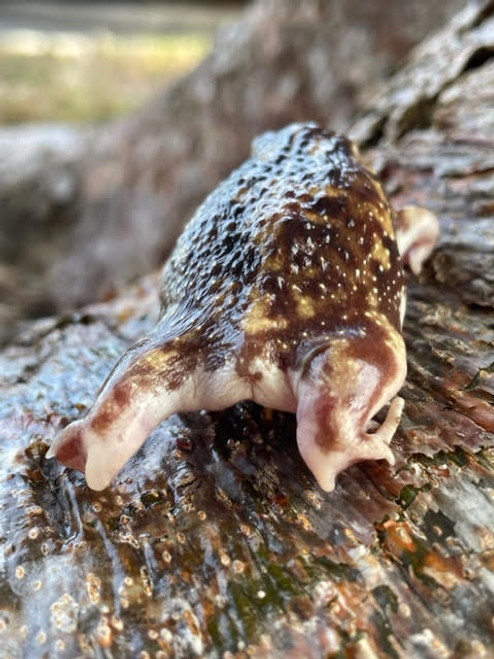Get Your Hands on a Rain Frog for Sale: Experience the Pleasure of Special Pet Dog Ownership!
Get Your Hands on a Rain Frog for Sale: Experience the Pleasure of Special Pet Dog Ownership!
Blog Article
Common Health Issues in Reptiles: Symptoms and Solutions
In the elaborate world of reptile care, comprehending the usual health issues that might influence these distinct creatures is paramount in ensuring their health. From respiratory infections that can calmly hold to metabolic bone diseases that can debilitate, reptiles are susceptible to a range of disorders that require eager monitoring and prompt intervention. Whether it's grappling with parasitical invasions, browsing dehydration worries, or attending to skin ailments that show up in refined methods, being attuned to the symptoms and equipped with the understanding of efficient options is vital for any type of reptile owner. By delving additionally into the nuances of these health concerns and checking out the practical remedies readily available, one can secure the health and vitality of these fascinating pets.
Respiratory System Infections
Respiratory infections in reptiles can dramatically impact their overall health and wellness and need punctual attention from skilled vets. These infections are commonly triggered by fungi, germs, or infections and can materialize via signs and symptoms such as hissing, nasal discharge, open-mouth breathing, and sleepiness. In reptiles, respiratory system infections can be particularly testing to detect and deal with as a result of their one-of-a-kind makeup and physiology. Vets usually count on a mix of physical exams, analysis imaging, and research laboratory tests to properly recognize the underlying source of the infection.
Therapy for breathing infections in reptiles usually involves a mix of encouraging care, such as keeping appropriate humidity degrees and temperature slopes in the enclosure, along with targeted medicine to address the details microorganism liable for the infection. It is vital for reptile owners to monitor their family pets carefully for any kind of indications of respiratory distress and look for vet treatment at the earliest indication of a concern. With timely treatment and appropriate therapy, numerous reptiles can recoup fully from respiratory system infections and resume typical tasks.

Metabolic Bone Disease
What aspects add to the development of Metabolic Bone Disease in reptiles?
Metabolic Bone Illness (MBD) in reptiles is largely triggered by a lack of appropriate calcium, phosphorus, and vitamin D3 degrees in their diet regimen. When reptiles do not obtain adequate calcium, either through their food or appropriate UVB exposure for vitamin D3 synthesis, they go to a high danger of creating MBD. Reptiles with diet regimens reduced in calcium or unbalanced calcium to phosphorus proportions are specifically susceptible. Additionally, inadequate direct exposure to UVB light protects against reptiles from manufacturing vitamin D3, which is critical for calcium absorption and bone health.
Inadequate humidity degrees can also affect a reptile's ability to metabolize calcium properly. Regular vet check-ups, appropriate husbandry practices, and a well balanced diet are necessary to avoid Metabolic Bone Condition in reptiles.
Parasitic Problems
Parasitical invasions present a substantial health and wellness risk to reptiles, influencing their total well-being and calling for punctual veterinary why not check here focus. Reptiles can be affected by various bloodsuckers, consisting of mites, ticks, inner worms, and protozoa. These bloodsuckers can create a series of symptoms, such as weight reduction, sleepiness, skin irritation, looseness of the bowels, and even death if left neglected.
One usual parasite found in reptiles is the mite, which can trigger skin tension, inflammation, and anemia. Ticks are an additional outside bloodsucker that can create and send diseases pain to the reptile. Interior bloodsuckers like worms and protozoa can cause digestion concerns, lack of nutrition, and weaken the reptile's body immune system.
To identify a parasitical invasion, a veterinarian may do fecal examinations, skin scrapings, or blood examinations. Treatment commonly entails deworming drugs, antiparasitic bathrooms, or in serious situations, a hospital stay. Preventative procedures such as regular veterinary check-ups, correct health, and quarantine procedures for new reptiles can assist decrease the danger of parasitical invasions and guarantee the wellness of reptile family pets.
Dehydration and Hydration Issues
Dehydration in reptiles can significantly affect their health and wellness, requiring prompt intervention and ideal hydration management. If left untreated, dehydration can lead to severe health issues and even be fatal to the reptile.
To stop dehydration, reptile proprietors need to make sure that their pets have accessibility to tidy water in all times. The water meal should be pop over to this site big sufficient for the reptile to take in if needed, particularly for varieties that take in water via their skin. Additionally, keeping correct moisture degrees in the reptile's enclosure and offering routine bathrooms can help avoid dehydration.
In instances of dehydration, it is critical to seek learn the facts here now veterinary care quickly. A vet might administer liquids either by mouth or through injections to rehydrate the reptile. It is vital to deal with the underlying reason of dehydration to avoid reoccurrence and make sure the reptile's overall well-being.
Skin Conditions

Conclusion

Respiratory system infections in reptiles can dramatically affect their total health and wellness and require timely attention from seasoned veterinarians (rain frog for sale). Preventative actions such as normal vet check-ups, correct hygiene, and quarantine treatments for new reptiles can assist minimize the danger of parasitic invasions and ensure the wellness of reptile pets
If left without treatment, dehydration can lead to major wellness issues and even be deadly to the reptile.
Frequently inspecting your reptile for any type of adjustments in skin shade, appearance, or structure can aid in early discovery and therapy of skin disorders, promoting the general wellness and health of your scaly companion. - rain frog for sale
In final thought, reptiles are vulnerable to various health and wellness problems such as respiratory infections, metabolic bone illness, parasitical problems, dehydration, and skin ailments.
Report this page